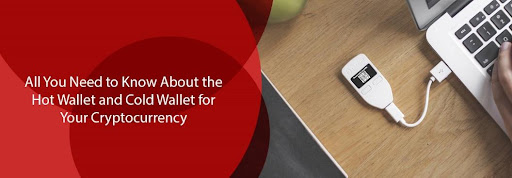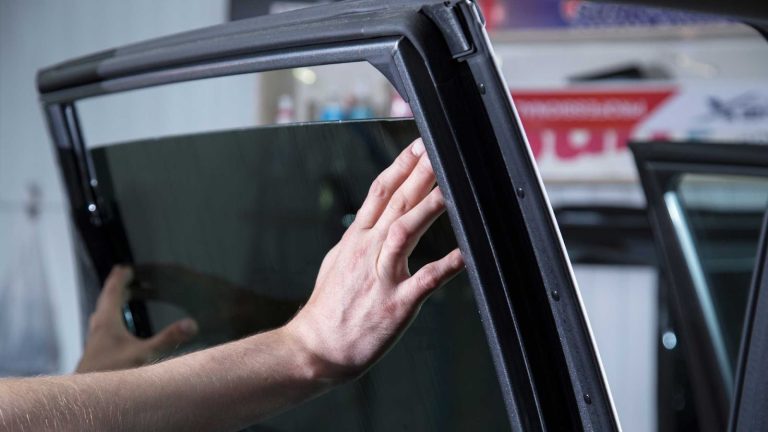
Well, digital currency exchanges are prone to cybercrimes and theft. While the digital currency was first said to be safer, it is not now with the rise in use. Since 2011, there have been major heists and a lot of bitcoins have been stolen until now, making the exchange and use of cryptocurrency difficult and risky. Well, with this said, there are two kinds of wallets that are usually used to hold your digital currency called cryptocurrency. One is called a ‘Hot Wallet’, and another is called a ‘Cold Wallet’.
Below, we have discussed the difference between these two kinds of wallets and all you need to know to keep your cryptocurrency exchanges easy, and safe.
Hot Wallets and Cold Wallets
While there are other wallets too, the hot and cold wallets are the most used and most famous wallets that are used to store your cryptocurrency. When it comes to Hot Wallets, they come in two forms, online, and desktop wallets. In laymen’s terms, hot wallets are digital cryptocurrency wallets that are connected to the internet and are used for the purpose of quick uses, and day-to-day exchanges. These wallets are free to use, and the best part is that they’re free.
Hot Wallets are also best for less mainstream cryptocurrency coins because cold wallets don’t entertain less mainstream coins. Well, while Hot Wallets are free and easy to use, they come with their own consequences. One of the major consequences of using hot wallets is that they are not very secure and are prone to hacks.
So, if you have daily use of cryptocurrency, it is best to have an authentic hot wallet and have it with a very secure internet connection. For good internet service providers that come under a budget, we suggest checking out TV and Internet Packages at Buytvinternetphone.com and get an internet service that suits your budget and comes with advanced internet security. They have plenty of internet bundle packages that come with advanced security to keep your hot wallets safe.
Well, when it comes to ‘Cold Wallets’, they are specifically designed devices that are disconnected from the internet used to physically store your cryptocurrency. You can take your crypto with you in cold wallets wherever you go. The wallets are handy and compact and can be carried in your pocket, and the biggest benefit of having such a wallet is that your currency will not be prone to cyberattacks.
The consequences of having these wallets are that they are expensive, have limited varieties of cryptocurrencies that you can store, and entertain only the main cryptocurrency coins, which makes them super expensive.
Well, with all of this being said, let’s have a detailed overview of Hot Wallets and Cold Wallets and how they work.
Hot Wallets
There are two types of famous hot wallets discussed below.
- Cloud Wallets
Cloud wallets are the kind of wallets that can store cryptocurrencies using any device that can connect to the internet, such as a mobile phone or a computer. When it comes to desktop wallets, wallets such as Exodus encrypt all your blockchain assets and store them directly on your personal computer.
- Multi-Signature Wallets
Well, as the name suggests, a multi-signature wallet needs two or three keys in order to access your funds. This makes it difficult for hackers to access your wallet due to the multiple difficult keys. There are different Multi-signature wallets, and an example is of BitGo which issues its user three private keys one of which is held by the company, the other is of the user, and the third key is a backup key that the user is allowed to give to a trusted friend or family for the safer side.
Cold Wallets
Similar to Hot Wallets, there are two kinds of cold wallets that we’ve discussed below.
- Hardware Wallets
There are several kinds of physical devices such as Ledger Nano S, Trezor, and KeepKey that support your digital currencies. The digital currencies that these wallets can support are famous cryptocurrencies such as Bitcoin, Ethereum, Dash, and ZCash. These wallets work with two-factor authentication by the FIDO or U2F industry standards and are encrypted with GPG. So, when it comes to losing your hardware wallets, you can easily gain back access to your account and cryptocurrency, as long as you remember your password.
- Paper Wallets
Well, with the increasing efficiency of cybercriminals, receiving and sending digital currency requires access to public and private keys. Well, having your keys safe is the most important part of keeping your cryptocurrency safe. In that case, printing out a paper wallet with your information is a much better way to keep your digital assets safe. These wallets can be made offline using a software to generate your keys and then erasing all traces of your keys. This will keep you off any cyberattacks and spyware.
Well, this is all about Hot and Cold Wallets, and while we have discussed the ways that these work, you should always make sure that you use your wallets efficiently.
Keep Your Cryptocurrency Safe and Easy to Access with These Tips:
- When you do frequent trading, keep changing your passwords and keys, and don’t keep large amounts in your hot wallets for a longer time.
- Always keep larger amounts that are not to be used frequently in a cold wallet, and keep the currency you use frequently in a hot wallet.
- Always use wallets that are authentic and password-protected, and never trust a third-party offer.
- For frequent transactions set up multi-signature, multi-party, or multi-factor wallets.
- Do not connect to a public Wi-Fi network or it will expose you to major cyber-attacks.
To Sum It Up
Well, when using cryptocurrency, it is important to keep your digital assets safe as cyber-crimes have been on the hike for the past few years and have been increasing every year. Well, there has been work done to keep your currency safe, but it is best to keep your assets safe by yourself.
If you have digital assets and you are still unaware of how cryptocurrency works and should be exchanged, you are making the biggest mistake. So, we hope we made a few things clear regarding digital wallets and provided you with a broader understanding of how digital wallets work.







